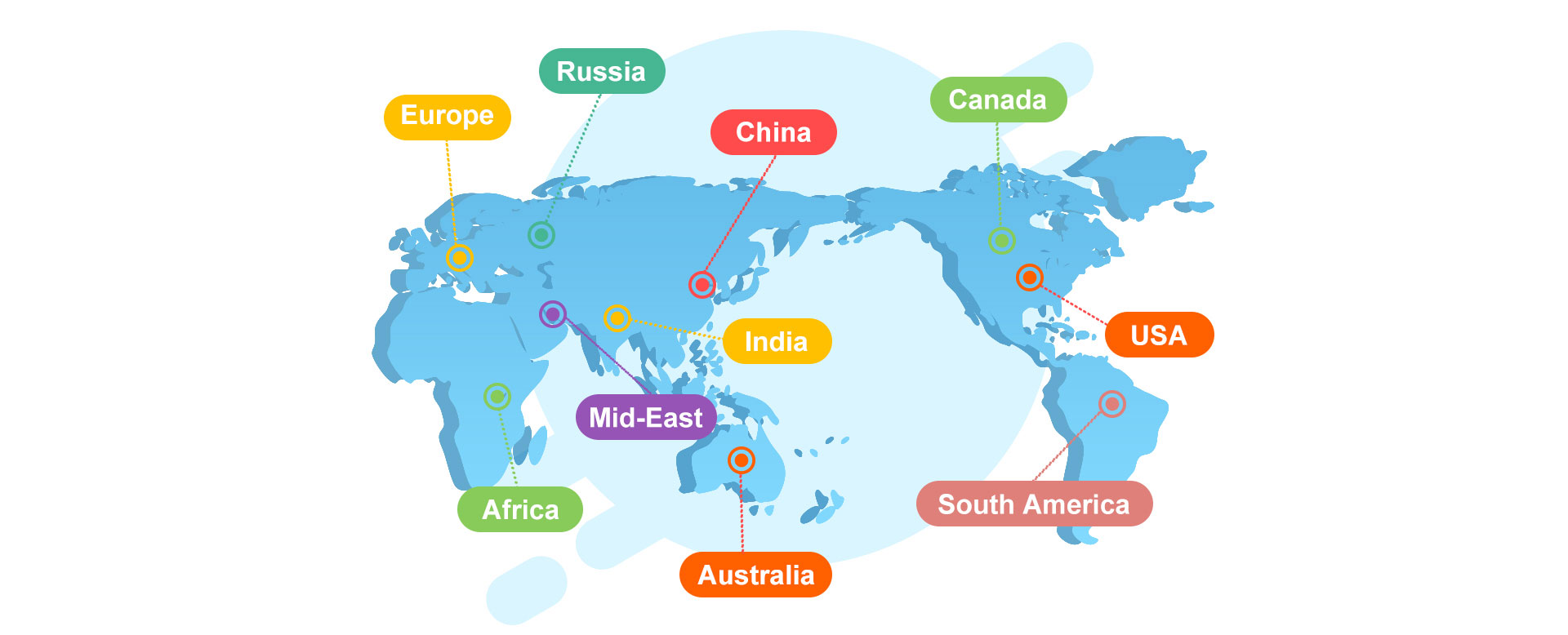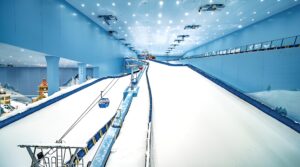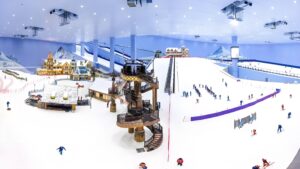The Rise of Indoor Skiing: How Technology is Bringing Snow to the Desert and Beyond
The global landscape of winter sports is undergoing a remarkable transformation. Indoor ski facilities, once a novelty, have become engineered marvels popping up in unlikely locations worldwide. The largest indoor ski resorts now operate in environments where natural snow is virtually unheard of, from Dubai’s desert climate to Guangzhou’s humid tropics.
This revolution is powered by specialized refrigeration technology that makes year-round winter conditions possible. Companies like Focusun Refrigeration have developed advanced cooling systems capable of maintaining sub-zero temperatures even in the harshest climates, opening new frontiers for snow sports and creating unprecedented business opportunities in the growing winter sports market.
The Global Indoor Ski Boom
The numbers speak to an industry in rapid expansion. China now hosts seven of the world’s ten largest indoor ski facilities, with 66 indoor snow centers currently operating across the country . These centers served approximately 563 million visitors during the 2024 season, representing a staggering 15% annual growth rate since 2020 .
This growth trajectory shows no signs of slowing. Major new facilities are slated to open soon in Shenzhen, Zhuhai, and Changchun, each pushing the boundaries of scale and technical achievement . The Shenzhen facility, set to open in late 2025, will feature a vertical drop of 83 meters and slopes stretching up to 463 meters .
The appeal for investors is clear: once established, these facilities create powerful first-mover advantages with large catchment areas and significant NOI (Net Operating Income) potential . Unlike traditional ski resorts constrained by geography and seasonality, indoor facilities can operate year-round in strategic urban locations.
The Technology Behind the Snow
Creating and maintaining winter conditions in tropical or desert environments presents extraordinary engineering challenges. The core technology enabling these facilities involves sophisticated refrigeration systems that must efficiently maintain sub-zero temperatures against extreme external heat.
Focusun Refrigeration has emerged as a key player in this niche market, developing specialized equipment capable of producing high-quality snow even in 35°C external temperatures . Their snowmaking machines employ dual-compression cycles and intelligent nozzle systems that create snow with qualities remarkably similar to natural snow—light, dry, and perfect for skiing.
These systems must address multiple technical challenges simultaneously:
Temperature control: Maintaining consistent below-freezing temperatures in large, open spaces with frequent door openings for visitors
Humidity management: Preventing fogging and ice formation in critical areas
Energy efficiency: Containing operational costs despite massive cooling demands
Snow quality: Producing snow with the right consistency for different skiing disciplines
Innovations like CO2 cascade refrigeration systems have emerged as environmentally preferable alternatives to traditional refrigerants, offering improved efficiency and reduced environmental impact . Some facilities, like the Xiangjiang Happy City project in China, utilize multiple temperature zones (-27°C, -13°C, and -8°C) to serve different areas within the same complex
Focusun’s Role in the Indoor Snow Industry
With over two decades of specialized experience, Focusun Refrigeration has positioned itself as a comprehensive solution provider for indoor snow facilities . The company offers end-to-end services from initial planning through to ongoing maintenance, addressing the unique challenges of creating winter environments in unlikely locations.
One of Focusun’s key innovations is their integrated approach to energy management. For a Middle Eastern project, the company developed a hybrid system combining solar power with compressor refrigeration, significantly reducing operational costs in energy-intensive desert environments . Their intelligent energy management systems allow remote monitoring and adjustment of cooling parameters, optimizing performance based on real-time conditions.
The company’s expertise extends beyond snow production to include complete environmental control systems. This includes specialized insulation techniques that transform entire buildings into what industry insiders call “super refrigerators” . The Xiangjiang Happy City project, for instance, uses advanced composite insulation materials in hollow wall structures ranging from 1.9 to 3 meters thick to maintain constant temperatures efficiently .









